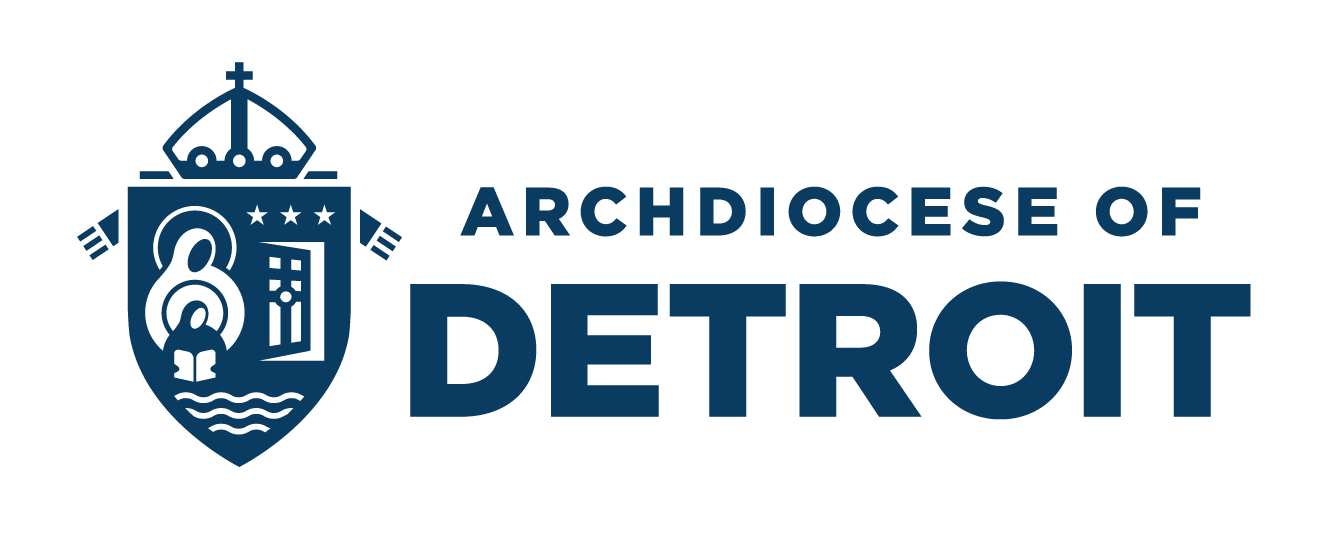Archbishop Vignerons Ash Wednesday Message
The following is a message for Ash Wednesday 2015, given by Archbishop Allen Vigneron.
n/aDear Brothers and Sisters in Christ,
Lent is a communal journey of conversion. All of us together are on the road toward the Easter Feast, and we need to support one another so that no one of us arrives without having grown to be more like Our Risen Lord over these holy Forty Days. To help do my part as your fellow pilgrim, I want here to offer a reflection that occurred to me in preparing to preach last Sunday.
The Old Testament and the Gospel readings appointed for the Sixth Sunday in Ordinary Time this year seemed to me to come as a gift of the Father’s Providence as we head into Lent. What these Scriptures say about leprosy speaks to us at an even deeper level about our being afflicted on account of our sinfulness.
Today, thanks be to God, health care professionals know a great deal about leprosy and about how to treat it. The confidence we can have from this new knowledge makes it very appropriate even to use the clinical name for this illness: “Hansen’s Disease.” However, for centuries this illness was a terrible scourge and a source of great fear. It is out of that age-old experience that the Scriptures speak and that we can understand leprosy, as it was long ago, as an analogue for our sinful condition.
A few parallels come to mind. First, leprosy was the cause of a bodily disfigurement and disintegration — a sort of physical corrosion. Our sins are a spiritual leprosy. By our acts of rebellion against God’s plan for our happiness we cause a spiritual disease that disfigures our heart and our mind. Second, in times past leprosy was highly contagious. Our sins have the same effect. Our acts of selfishness pollute our homes, our workplaces, our neighborhoods, all of the communities of which we are a part. Left to its own inner dynamic, sin begets sin. And, finally, like leprosy prior to modern medicine, sin separates and isolates us from each other, walls us off from each other — for sin is nothing else than a choice for self at the expense of communion with God and others. It is a choice against authentic love.
“Moved with pity, Jesus … said to him, ‘I do will it. Be made clean’” (Mk 1: 41).
To my mind, perhaps the most important lesson last Sunday’s readings teach us about sin through their remarks about leprosy concerns the contrast in the way each speaks about how leprosy is dealt with. In the Old Law, according to text from Leviticus leprosy is to be “managed.” It is left in place, with a set of detailed strictures about how to minimize its consequences. In the New Covenant, as St. Mark reports, Jesus exercises full power over the leper’s disease. He does more than manage. He cures. These two contrasting ways of dealing with leprosy serve to exemplify the point St. Paul so frequently makes in his Letters: that with the coming of Jesus Christ we need no longer content ourselves with managing sins according to the law; by the grace of Christ through faith our sinfulness is healed. We are a new creation as the Apostle tells the Corinthians (2 Cor 5: 17).
So, then, Lent is a time for us to bring to our Savior the spiritual leprosy of our sinfulness. It needs to be cured. When we pause to be quiet and look at ourselves honestly each one of us sees how our sins disfigure our hearts, pollute our relationships and drive us apart from God and each other. So, let no one hang back. Step up before the face of Jesus and, like the leper, say with confidence, “If you wish, you can make me clean” (Mk 1:40). All our acts of self-denial, our increased good works, every minute dedicated to increased heartfelt prayer is a moment to say, “I want to be healed of my sin. I believe you can do it, Jesus, and I know you will.”
Let us honestly look at our hearts and minds this Lent and identify how they are infected with selfishness, and then bring them to Christ for healing, especially through the Sacrament of Penance and Reconciliation in the confessional. This healing is the gift Jesus won for us by his Paschal Mystery. He died so he could do more for us than manage our evils. And his rising is our victory over sin and its fruit which is death.
Let’s go to Jesus together. Together this Lent, let us ask for the healing he so longs to give us. And then, together we can rejoice at Easter with boundless joy.


